Help me write the books! I’m already doing it but genuinely need financial backing here on Substack so I can provide for my kids and write for real. If you like this consider supporting this work. This post is part of Finding Home, a memoir-in-progress tracing the journey from corporate life to sacred travel, and the unexpected lessons that led me home.
-October 22, 2023 – Pisac, Peru
I was riding in a combi (shared public transpiration) when I struck up a conversation with a Dutch traveller. We got to talking about survival skills and education — how in Peru, people know how to cook, grow food, fix things. They work with what they have. There’s a kind of grounded resourcefulness here that’s part of daily life.
He contrasted it with where he was from — how so many Europeans and Americans are disconnected from the basics. Everything is pre-made, handed to you, packaged for convenience. He asked, almost rhetorically, “Are we even strong anymore? Can we problem-solve when something goes wrong?”
He told me about a moment when a bus broke down in Peru, and within two minutes, everyone had jumped onto a different bus. No one waited around on the side of the road for a mechanic. They just moved. Found the next option. Kept going.
In Europe, or the U.S., we agreed that people would’ve just stood there. Called someone. Waited. Expected help to arrive.
That’s when it hit me — how deeply society conditions us to wait.
To freeze.
To be saved.
After the quick conversation with a Dutch traveler about problem solving and survival in Peru, I had a vivid memory flashback — a moment from my 2013 sabbatical that I hadn’t thought about in years.
It was the time I accidentally became the one to lead a stranded group of tourists through a remote high mountain pass during a huge landslide.
The Lonely Bus
I was on a overnight, long-distance bus ride, winding through the mountains. I had been taking locals buses to off the beaten path areas for months. I was prepared for the long voyage with a scarf over my eyes to block out the bus lights — they never turned off — and my earplugs in to muffle the usual soundtrack of battery-operated toys, loud movies and chatty passengers. I'd learned how to rest through these kinds of long journeys.
At some point, I felt the bus stop. I noticed some jostling and movement — people walking past — but I didn’t think much of it. Buses stopped all the time for bathroom breaks, quick snacks, or just to load more passengers.
So I stayed still, stayed resting.
When I finally woke again, it was morning.
Everything was quiet.
Too quiet.
I pulled off the scarf off my eyes and sat up. The bus was completely empty. No passengers. No driver. Just silence. Just me and my pack still stowed in the luggage compartment, the only one in the eerily empty bin.
It felt like that scene from the movie 28 Days Later — everyone disappeared into thin air and there was no one in sight. My brain was spinning and heart pumping and I had no idea what to think. Is this the apocalypse? How? Why? Where is everyone?
I was in shock and stunned, and stepped out of the bus to the cold mountain air to find a long, silent line of abandoned buses and cars parked right on the road along the very high, very narrow pass.
Not another human in sight. Not comforting.
I started walking. What else was I supposed to do? Wait to be saved?
The Landslide
After about fifteen long minutes, I came to a small roadside food shop. The owner explained there’d been a landslide the day before— a massive one. The road ahead was blocked. No vehicles could pass. There had already been a mass exodus but I had missed it because I was asleep.
If I wanted to continue, I’d have to walk alone, “25 minutes that way,” they said, and they just pointed down the road and all I could see where more empty vehicles along along the windy mountain. You never know if 25 min is 25 min in Peru. It could be 2 hours. It could be never.
So I continued on.
I start the intimidating journey of trekking down the mountain pass alone, with just me and my backpack, and still don’t see another person after the little shop. Just more and more buses for a mile.
Then way ahead, I finally saw one single packed bus — Western tourists still inside, sitting dazed in their seats. The windows were closed and steamed but I could still see the freaked out faces.
I found out that their American tour company told everyone not to leave the bus — and no one questioned it. No one got out. They had been there for almost 24+ hours without water or food and were all panicking. No one fully knew what was going on, nor did they speak Spanish. They just listened to their bus driver — that they were supposed to sit there — so they did.
Waiting for the buses to move.
Waiting for someone to tell them what to do.
I explained what was going on, the little I knew…and that I was going to walk to the other side of the landslide. At first, they hesitated — afraid to take matters into their own hands.
But finally, I convinced them. No one is coming. There is no way this will clear up quickly. Let’s go and see what’s ahead. I’m going.
Crossing the Wild
We walked together chatting about travels until we reached the slide zone.
It was intense.
Huge boulders had fallen across the road. Water — muddy, fast-moving — rushing down the mountain. In some places it was knee- to thigh-deep, wide as a highway.
Locals had already made makeshift crossings — wooden planks and logs — to cross the rushing river of muck. They were helping others find safer spots through the forest farther up the mountain where it was less deep. Everyone had to cross on foot, carrying their bags and their fear. It was nuts.
Local people formed chains to help each other through it. Some men offered to carry the heaviest backpacks and offered hands to unstable tourists.

No one charged a cent.
On the other side, drivers were waiting with buses and cars — ready to take people into Cusco.
No price gouging. Just 20 soles — five dollars — to get to safety and off the mountain.
Tourists and Tools
I gave people water, baby wipes, toilet paper, and snacks that I had packed once we were safe on the new bus. Bus rides — especially long ones — can feel grimy. And I’d already been traveling in local buses for months. Thankfully, I had a routine for long bus trips and had the backpack and gear to make it easier. Somehow I became the one that had calm in the unbelievable situation.
Months of rustic travel had taught me to always be prepared. I had a rhythm. A routine. I had some comforts and experience that I shared.
But something deeper struck me:
In the modern world, we’ve been trained to wait for a savior. Archetypes or religious ideas that Jesus comes back or Hollywood tropes — one hero who rescues the day. If you need something in your house fixed, you call a plumber, an electrician or a gardener.
Whether it’s religion, movies or modern convenience, there’s a pattern —
Someone else will fix it.
Someone else will come.
Someone else will lead.
Cultural Contrast
In the West, we’ve outsourced even the simplest skills:
Fixing a pipe.
Growing and making food.
Finding our way.
We expect an app. A number to call.
A button to push. An expert.
But in Peru, people just got off the bus. They walked with their heavy things. They didn’t know how long it would take. They didn’t complain or panic. They helped one another. They moved forward without needing permission.
They just set up a quick solution because they didn’t know if anyone would come to fix the road — or how long it would take. (And it would probably take weeks, if not months, to fully fix it.) No one was trying to cross on a bus or car on a crazy mountain road with a huge ravine below. The buses were left empty and on the road, and everyone knew they’d come back for them when things cleared.
They found a way through. And didn’t even try to price gouge or exploit the tough situation.
Coming Full Circle
We got to Cusco safely and quickly. When the waters finally stopped flowing, the boulders would be removed. Others would return later for the vehicles. No rush. No fear.
That night, the group I’d helped asked me where to stay and where to eat. I’d been to Cusco before, so I guided them to a local hostels and restaurants. Many people came together to buy me dinner, paid for my stay, and thanked me. I became the one that others leaned on — not because I knew everything, but because I wasn’t afraid to act. Well, that’s not true, I was still terrified, but I walked anyway.
They were relieved and grateful didn’t have to spend another night stranded in the mountains.
Systems of Waiting
Tour groups are built for efficiency, ease and comfort. Pre-planned schedules. Pre-chosen destinations. You get told when to take the photo and where to get your meal and what to eat. On the bus, off the bus. Stay here, stay there.
There’s comfort and ease in that.
Until the schedule breaks. (Which it often does here)
Then what?
In the face of the unknown, the tourists froze.
They waited.
Not because they were weak or dumb —
But because they were trained to.
A Different Way
Traveling and living in Peru taught me many things, but these things stand out :
There is no single path to safety.
Sometimes, the path is made by walking it.
Sometimes, alone at first and then Together.
We’ve forgotten how to problem-solve.
How to trust each other.
How to trust ourselves.
Not everyone needs to be “saved.”
Sometimes we just need to remember how to move. How to ask, and how to be willing to walk down a windy road when you don’t see the destination or what it leads to.
And maybe...
It’s time we just get off the bus.
——
I have thousands of crazy-ass stories like this— I want to share them and weave them together to become something lasting and something meaningful. Beyond a travel memoir, I have seen miracles like helping the deaf hearing after the energy work I downloaded from 15 years of meditation, heard stones talk and weep and accidentally ended up in very strange and unconventional circumstances over and over. I’ve connected deep societal patterns throughout it all. — Please support my work.
Here are a few ways you can help me as I restart life after living off-grid and losing everything to the jungle. No joke. your support will make sure the holes in our teeth are fixed, we can buy shoes and eat. Let’s gooooo.
✨ Become a supporter on Substack
✨ Send a one-time gift via PayPal (most helpful, low fee option)✨
✨ Buy Me a Coffee
If you are new. here is some backstory to contextualize the writings.
The Beauty Way
Questions came in as I shared about some of the intense changes, challenges, and differences from modern lifestyles. Friends and family responded with shock and horror as I revealed bits of our daily life during its hardest moments on Facebook.
Life as a spiral - back around again
My loves, my friends, my substack family. I’m in the middle of a move. A long drawn out move away from the jungle and back to my little town in the Andes. Cooler, fresher, exponentially easier and uncomfortably timed during the holidays. I haven’t had internet or a place to work the last couple weeks and now I’m full-time with my beautiful boys through…
The life I’m providing for- 3 wild little boys in nature and in history. Can you spot the bears?






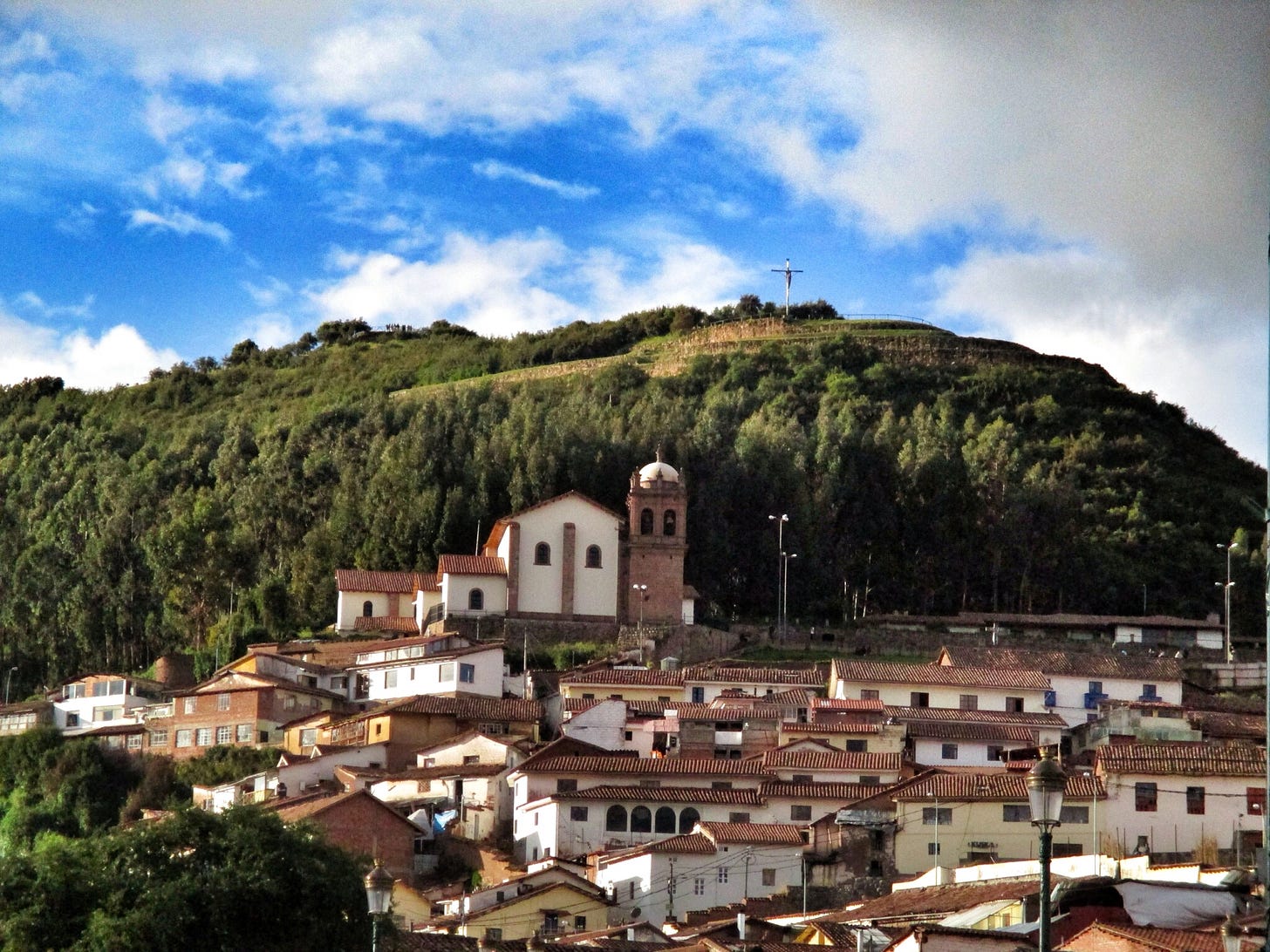
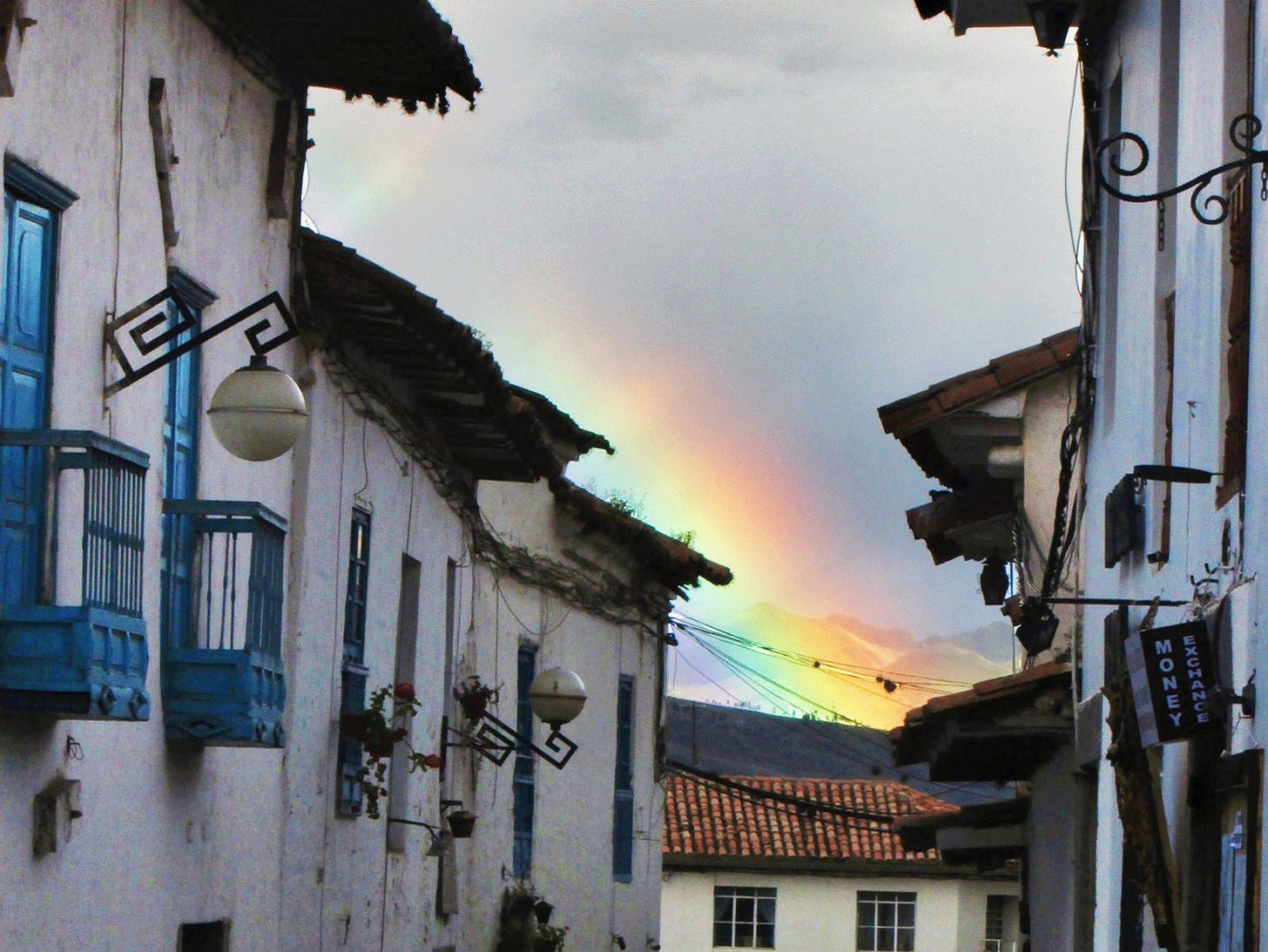
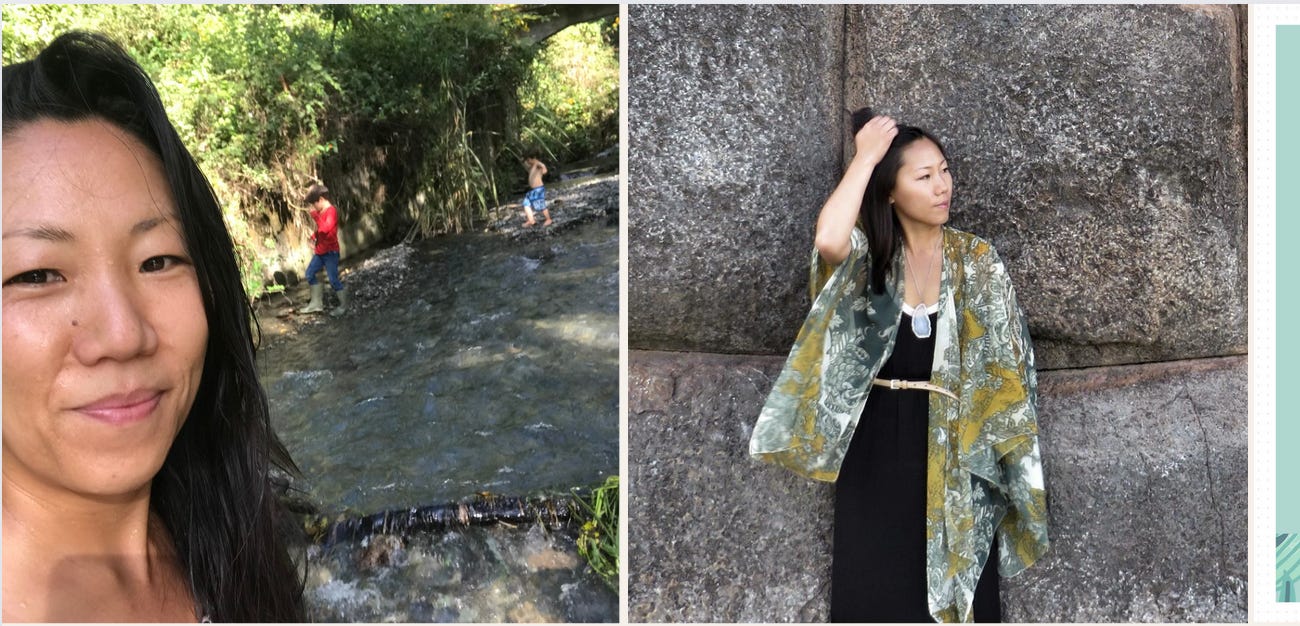
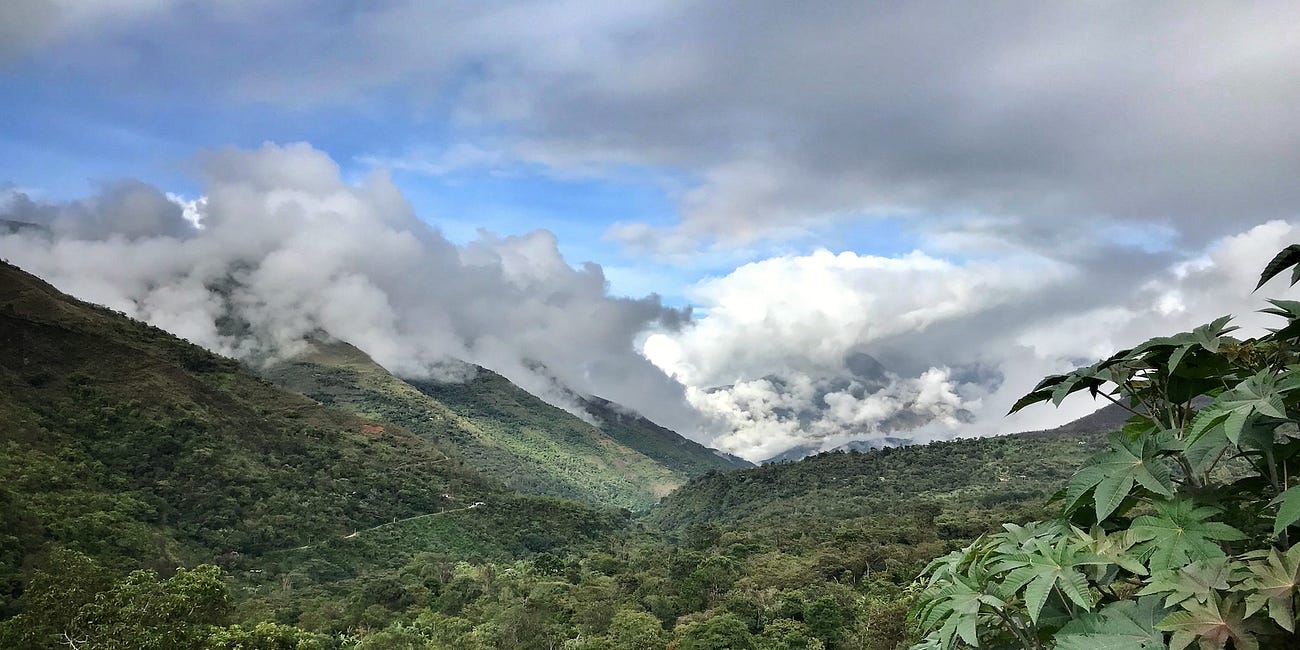
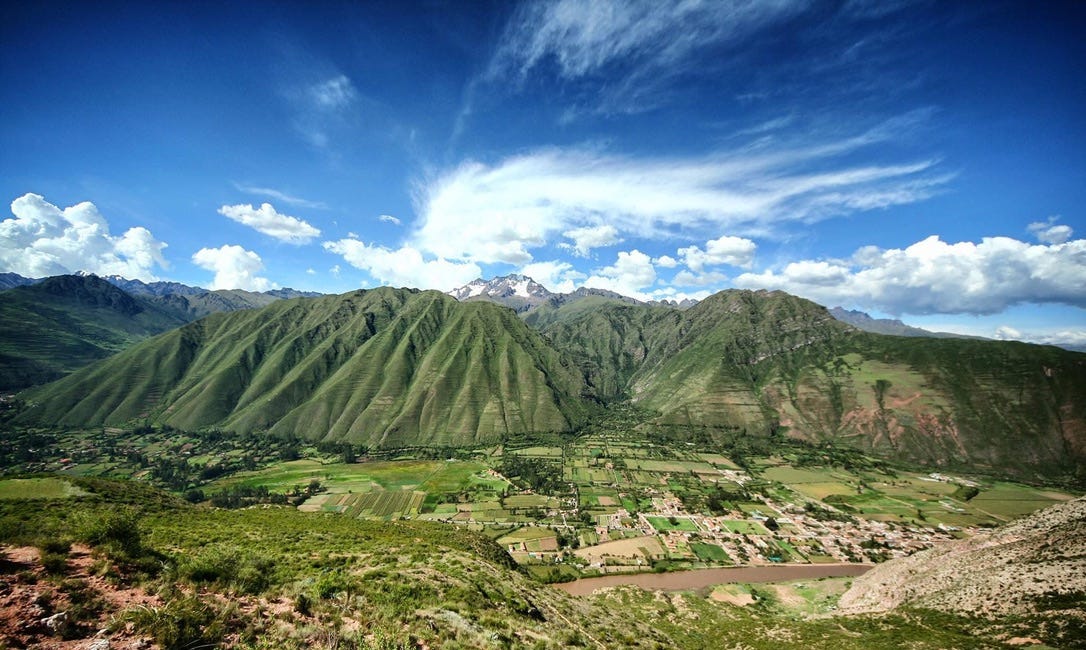

Firstly, I can't wait to read your book, Megan! What an incredible story. Your storytelling is so captivating and deep with meanings and wisdom. Your words are like a mirror reflecting back to us (the readers) to inquire what we'd do in the same situation. I feel like you are gifting the guidebook on remembering how to be human once again.
I haven't done any backpacking trip in my youth, but I really resonate with this story and your action. Maybe it speaks to my sense of hyper-independence rooted from childhood that I believed no one would come and change things for me except me. The only way through life is to keep walking!
We are taught by literature, by movies, and by societal norms to call someone then sit tight and wait to be rescued by some hero-figure when things go wrong. But this article asks an intriguing question about that situation: “What if nobody is going to come?”
I like the way you weave that question into a simple but captivating tale of a bus trip in Peru and what transpired there during a landslide. If feels almost like an answer to Samuel Beckett’s Waiting for Godot - a play in which almost nothing happens because people hang around waiting for a God who never arrives.